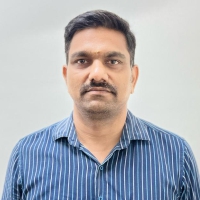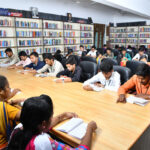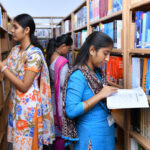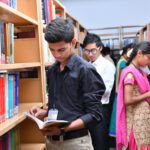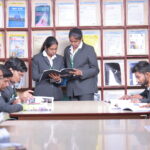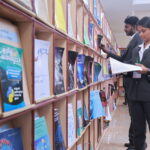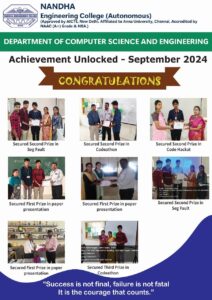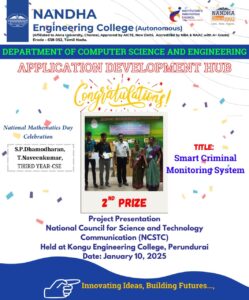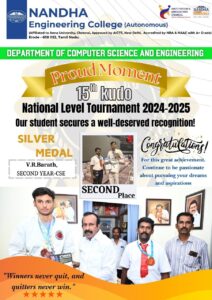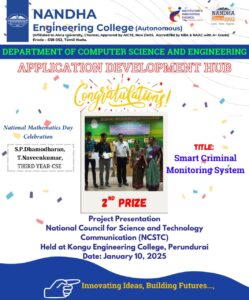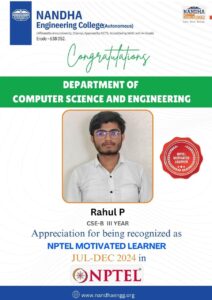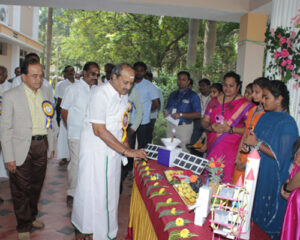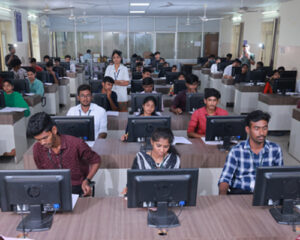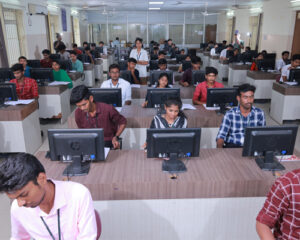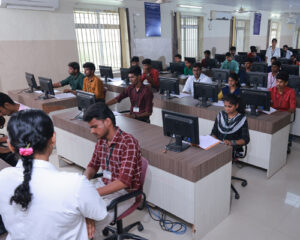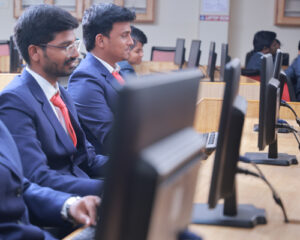
Head of the Department
About the Department
The Department of Mathematics plays a pivotal role in establishing a strong academic foundation for engineering students by providing essential mathematical knowledge and enhancing their analytical abilities. Committed to excellence in teaching and research, the department fosters a deep comprehension of mathematical principles and their practical applications across diverse engineering fields.
Our experienced faculty actively engage in advanced research and interdisciplinary collaborations, equipping students with both theoretical insights and hands-on problem-solving expertise. The curriculum is meticulously structured to develop logical reasoning, computational proficiency, and innovative problem-solving strategies relevant to real-world engineering challenges.
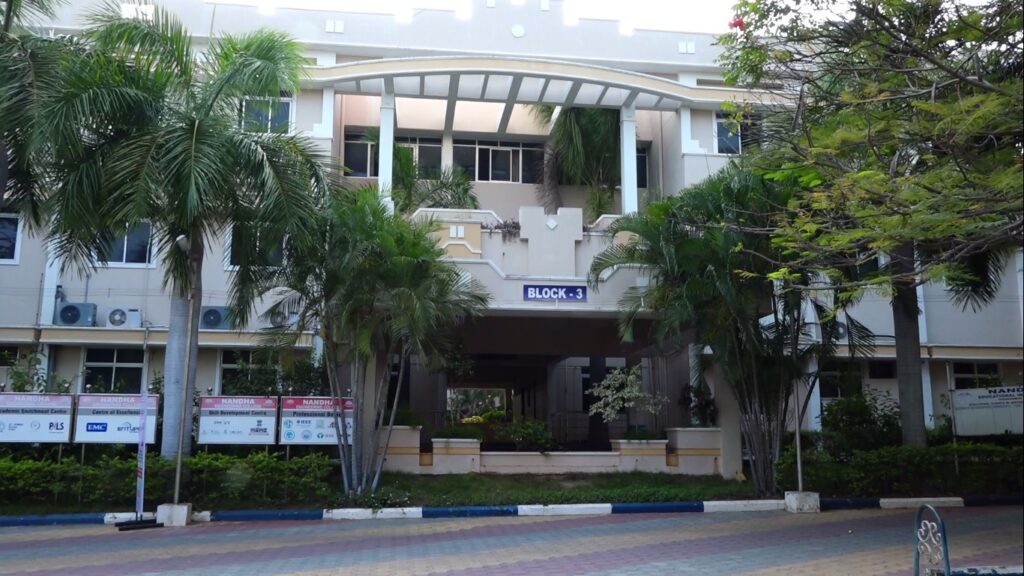
VISION
Our vision is to nurture a profound grasp of mathematical concepts and their applications in engineering and technology, promoting innovation and interdisciplinary cooperation.
MISSION
- Facilitate student participation in critical thinking and problem-solving by promoting in-depth research in mathematics and interdisciplinary domains.
- Expand knowledge in Mathematics, establish the department as a research centre and cater to the needs of the student community to become qualified professionals.
PROGRAM EDUCATIONAL OBJECTIVES (PEOs)
- PEO1: Core Competency: Apply the knowledge of mathematics, science and engineering fundamentals to identify and solve technological problems by deploying various software tools for societal development.
- PEO2: Research, Innovation and Entrepreneurship: Implement recent tools, technologies and innovative ideas for leading successful careers in research / entrepreneurship and to excel in solving real world problems.
- PEO3: Ethics, Human Valued and Life-Long Learning: Exhibit professional ethics in the industry and possess the necessary skills for working in multi-disciplinary areas with focus on life-long learning.
- PO1: Engineering Knowledge: Apply knowledge of mathematics, natural science, computing, engineering fundamentals and an engineering specialization to develop the solution of complex engineering problems.
- PO2: Problem Analysis: Identify, formulate, review research literature and analyze complex engineering problems reaching substantiated conclusions with consideration for sustainable development.
- PO3: Design/Development of Solutions: Design creative solutions for complex engineering problems and design/develop systems/components/processes to meet identified needs with consideration for public health and safety, whole-life cost, net zero carbon, culture, society, and environment as required.
- PO4: Conduct Investigations of Complex Problems: Conduct investigations of complex engineering problems using research-based knowledge including design of experiments, modelling, analysis & interpretation of data to provide valid conclusions.
- PO5: Engineering Tool Usage: Create, select and apply appropriate techniques, resources and modern engineering & IT tools, including prediction and modelling recognizing their limitations to solve complex engineering problems.
- PO6: The Engineer and The World: Analyze and evaluate societal and environmental aspects while solving complex engineering problems for its impact on sustainability with reference to economy, health, safety, legal framework, culture, and environment.
- PO7: Ethics: Apply ethical principles and commit to professional ethics, human values, diversity and inclusion; adhere to national & international laws.
- PO8: Individual and Collaborative Teamwork: Function effectively as an individual, and as a member or leader in diverse/multi-disciplinary teams.
- PO9: Communication: Communicate effectively and inclusively within the engineering community and society at large, such as being able to comprehend and write effective reports and design documentation, make effective presentations considering cultural, language, and learning differences.
- PO10: Project Management and Finance: Apply knowledge and understanding of engineering management principles and economic decision-making and apply these to one’s own work, as a member and leader in a team, and to manage projects and in multidisciplinary environments.
- PO11: Life-Long Learning: Recognize the need for, and have the preparation and ability for i) independent and life-long learning ii) adaptability to new and emerging technologies and iii) critical thinking in the broadest context of technological change.
- PSO1: Analyze, design and apply mathematical foundations, principles of computing, Algorithms, modeling and design of Information Technology based systems.
- PSO2: Develop problem-solving skills in the broad area of programming concepts and to manage interdisciplinary projects.
Faculty Members
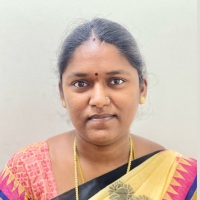
Dr.Nagajothi N
Assistant Professor
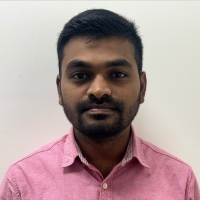
Dr.Venkatachalam K
Assistant Professor
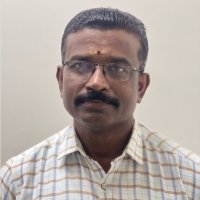
Mr.Jaisankar P
Assistant Professor
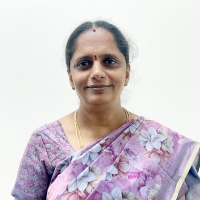
Ms.Bharathi.M
Assistant Professor
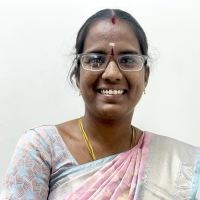
Ms.Priyadharsini.M
Assistant Professor
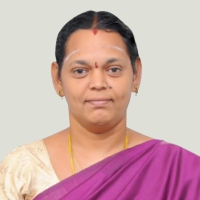
Ms.Amutha R
Assistant Professor
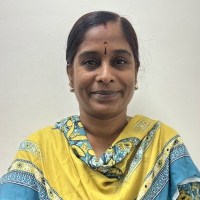
Ms.Devi P
Assistant Professor

Ms.Amutha Praba J
Assistant Professor
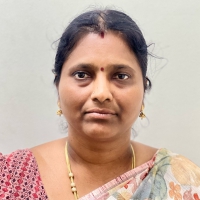
Ms.Bharathi P
Assistant Professor
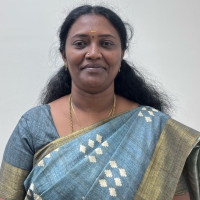
Ms.Megala A
Assistant Professor
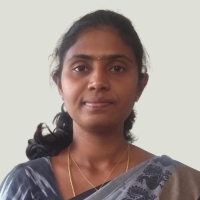
Ms.Loganayaki P
Assistant Professor
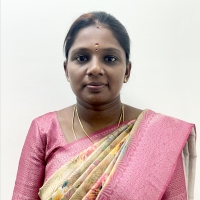
Ms.Saranya S
Assistant Professor
Department Laboratory

CC-I
The laboratories are well equipped with the current technology, equipment and licensed software packages to enrich the learning experience with the support of Program specific curriculum, which is carefully designed to include the modern technological trends. Each laboratory maintains a stock register detailing the history of the equipment available. Each laboratory operates on a specific schedule which is stated by the corresponding Time Table of the specific semester / branch.
CC-II
The laboratories are well equipped with the current technology, equipment and licensed software packages to enrich the learning experience with the support of Program specific curriculum, which is carefully designed to include the modern technological trends. Each laboratory maintains a stock register detailing the history of the equipment available. Each laboratory operates on a specific schedule which is stated by the corresponding Time Table of the specific semester / branch.
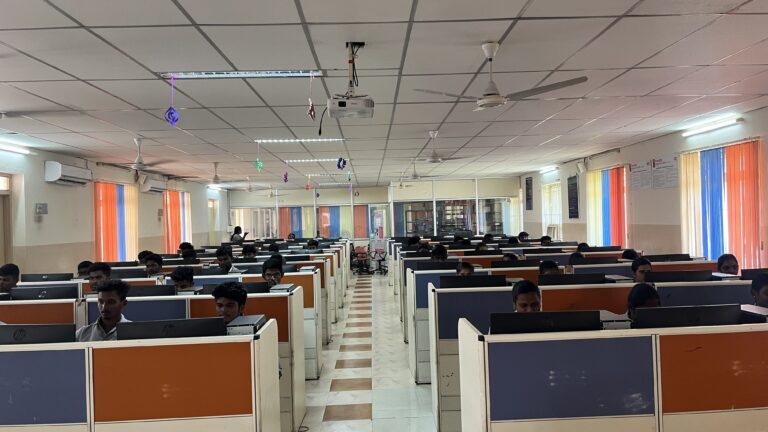

CC-III
The laboratories are well equipped with the current technology, equipment and licensed software packages to enrich the learning experience with the support of Program specific curriculum, which is carefully designed to include the modern technological trends. Each laboratory maintains a stock register detailing the history of the equipment available. Each laboratory operates on a specific schedule which is stated by the corresponding Time Table of the specific semester / branch.

